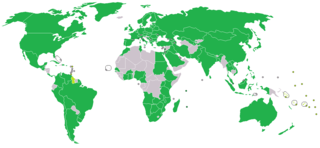
The International Council for Science was an international non-governmental organization devoted to international cooperation in the advancement of science. Its members were national scientific bodies and international scientific unions.
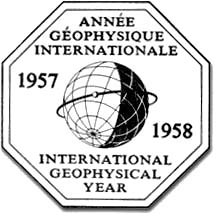
The International Geophysical Year, also referred to as the third International Polar Year, was an international scientific project that lasted from 1 July 1957 to 31 December 1958. It marked the end of a long period during the Cold War when scientific interchange between East and West had been seriously interrupted. Sixty-seven countries participated in IGY projects, although one notable exception was the mainland People's Republic of China, which was protesting against the participation of the Republic of China (Taiwan). East and West agreed to nominate the Belgian Marcel Nicolet as secretary general of the associated international organization.
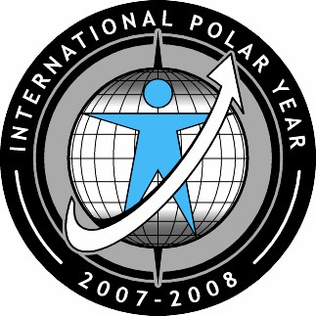
The International Polar Years (IPY) are collaborative, international efforts with intensive research focus on the polar regions. Karl Weyprecht, an Austro-Hungarian naval officer, motivated the endeavor in 1875, but died before it first occurred in 1882–1883. Fifty years later (1932–1933) a second IPY took place. The International Geophysical Year was inspired by the IPY and was organized 75 years after the first IPY (1957–58). The fourth, and most recent, IPY covered two full annual cycles from March 2007 to March 2009.

The World Climate Research Programme (WCRP) is an international programme that helps to coordinate global climate research. The WCRP was established in 1980, under the joint sponsorship of the World Meteorological Organization (WMO) and the International Council for Science (ICSU), and has also been sponsored by the Intergovernmental Oceanographic Commission (IOC) of UNESCO since 1993.
The International Union of Radio Science is one of 26 international scientific unions affiliated to the International Council for Science (ICSU).
The World Data Centre (WDC) system was created to archive and distribute data collected from the observational programmes of the 1957–1958 International Geophysical Year by the International Council of Science (ICSU). The WDCs were funded and maintained by their host countries on behalf of the international science community.
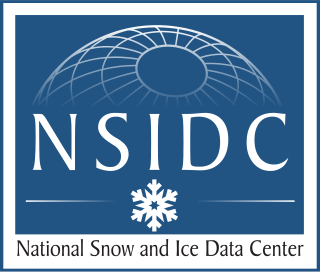
The National Snow and Ice Data Center (NSIDC) is a United States information and referral center in support of polar and cryospheric research. NSIDC archives and distributes digital and analog snow and ice data and also maintains information about snow cover, avalanches, glaciers, ice sheets, freshwater ice, sea ice, ground ice, permafrost, atmospheric ice, paleoglaciology, and ice cores.
The Committee on Space Research (COSPAR) was established on October 3, 1958 by the International Council for Scientific Unions (ICSU) and its first chair was Hildegard Korf Kallmann-Bijl. Among COSPAR's objectives are the promotion of scientific research in space on an international level, with emphasis on the free exchange of results, information, and opinions, and providing a forum, open to all scientists, for the discussion of problems that may affect space research. These objectives are achieved through the organization of symposia, publication, and other means. COSPAR has created a number of research programmes on different topics, a few in cooperation with other scientific Unions. The long-term project COSPAR international reference atmosphere started in 1960; since then it has produced several editions of the high-atmosphere code CIRA. The code "IRI" of the URSI-COSPAR working group on the International Reference Ionosphere was first edited in 1978 and is yearly updated.

The World Glacier Monitoring Service (WGMS) was started in 1986, combining the two former services PSFG and TTS/WGI. It is a service of the International Association of the Cryospheric Sciences of the International Union of Geodesy and Geophysics as well as of the World Data System of the International Council for Science and works under the auspices of the United Nations Environment Programme (UNEP), the United Nations Educational, Scientific and Cultural Organisation (UNESCO), and the World Meteorological Organization (WMO)

This list of 20th-century earthquakes is a list of earthquakes of magnitude 6 and above that occurred in the 20th century. Sone smaller events which nevertheless had a significant impact are also included. After 1900 most earthquakes have some degree of instrumental records and this means that the locations and magnitudes are more reliable than for earlier events.

DataCite is an international not-for-profit organization which aims to improve data citation in order to:
The 1941 Andaman Islands earthquake struck the Andaman Islands on June 26 with a magnitude of 7.7 to 8.1. Details of this event are poorly known as much of Southeast Asia was in the turmoil of World War II. The quake caused severe damage in the Andaman Islands. The tsunami it triggered was reported along the Andaman and Nicobar Islands, India and British Ceylon. There may have been damage and deaths in Bangladesh, Myanmar, and Thailand due to the tsunami.
Vijay Prasad Dimri is an Indian geophysical scientist, known for his contributions in opening up a new research area in Earth sciences by establishing a parallelism between deconvolution and inversion, the two vital geophysical signal processing tools deployed in minerals and oil and gas exploration. In 2010, the Government of India awarded him with the Padma Shri, India's fourth highest civilian award, for his contributions to the fields of science and technology.
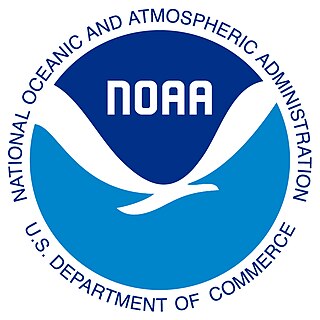
The National Centers for Environmental Information (NCEI) is a U.S. government agency that manages one of the world's largest archives of atmospheric, coastal, geophysical, and oceanic data. The current director is Derek Arndt.

The Research Data Alliance (RDA) is a research community organization started in 2013 by the European Commission, the American National Science Foundation and National Institute of Standards and Technology, and the Australian Department of Innovation. Its mission is to build the social and technical bridges to enable open sharing of data. The RDA vision is researchers and innovators openly sharing data across technologies, disciplines, and countries to address the grand challenges of society. The RDA is a major recipient of support in the form of grants from its constituent members' governments.
The International Science Council (ISC) is an international non-governmental organization that unites scientific bodies at various levels across the social and natural sciences. The ISC was formed with its inaugural general assembly on 4 July 2018 by the merger of the former International Council for Science (ICSU) and the International Social Science Council (ISSC), making it one of the largest organisations of this type.
The 1941 Hyūga-nada earthquake occurred off the coast of Kyushu, Japan at 19:02 local time on November 19. The earthquake measured 8.0 Mw and had a depth of 35 km (22 mi). A JMA seismic intensity of 5 was observed in Miyazaki City and Nobeoka City in Miyazaki Prefecture, and Hitoyoshi City in Kumamoto Prefecture. Due to the earthquake, a tsunami with a maximum wave height of 1.2 m was observed in Kyushu and Shikoku. The tsunami washed away many ships. Twenty-seven homes were destroyed and two people were killed. In Miyazaki, Ōita and Kagoshima prefectures, telephone services were disrupted. Subsidence by 8 cm (3.1 in) was recorded at Hyūga, Miyazaki. At Nobeoka, stone walls and embankments were damaged while roads cracked. It was felt as far as central Honshu.









